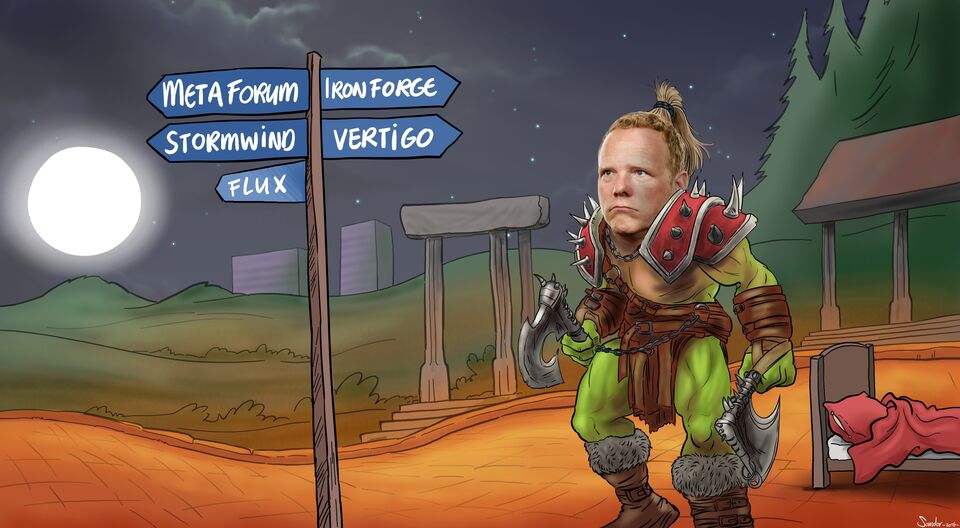Brainmatters | The Tetris effect
Ever dream of colored jellybeans you can make disappear by the row, like dominoes? Do you ever see the world scrolling by automatically after playing several hours of Guitar Hero? Or do you sometimes feel, watching the soccer highlights on Sunday, you can help Luuk de Jong play a perfect through ball by moving your right thumb, because you played FIFA all afternoon?
If you recognize any of this, you’re not alone. The phenomenon even has a name: the Tetris effect. The first-ever scientific study on the subject was carried out by Robert Stickgold, a Harvard psychiatrist. He was interested in hypnagogic hallucinations, which are the images we sometimes see when we’re half awake, half sleeping. He had students play Tetris for hours and what do you know? They saw falling blocks in their half sleep.
Interestingly, he also had a number of students participate who suffered from memory issues. Although they couldn’t remember having played Tetris, they still reported seeing floating and turning block shapes. Even without the explicit memory, activities from your daily life can influence your dreams.
Recent research from our own Game Experience Lab shows games don’t come back during half sleep (hypnagogia) only. We’ve talked to regular World of Warcraft players and they saw elements from the game world appear in daydreams, fantasies and their day-to-day language, they had WoW associations with sound and music, and it even affected the perception of their surroundings. One subject associated the TU/e campus signage with signs in the game that indicate the region Stormwind and city Ironforge. Admittedly, Stormwind and Ironforge do sound much more exciting than MetaForum, Flux, and Atlas.
The Tetris effect doesn’t apply to gamers exclusively, of course. Computer programmers dream of codes, mathematicians of algorithms and musicians of music. Any activity we work on like a mild monomaniac for a long time takes root in our brain, and so affects the way we see the world around us. We seem especially susceptible to instant replays when we let our brains wander off – during half sleep, meditation, daydreaming or when we’re doing nothing in particular. So now you know why you saw your fellow students’ health status bars run low during that boring lecture that one time.
Wijnand IJsselsteijn | Professor of Cognition and Affect in Human-Technology Interaction


Discussion